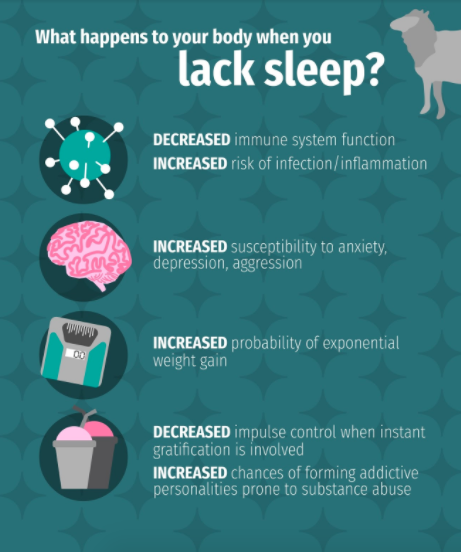
The onslaught of college life inevitably is associated with a steep increase in stress and decrease in sleep. Cold medication and caffeine are staples found in almost every college student’s room and a recent study has found that one fuels the supply of the other.
A study published in the Journal of the American Medical Association: Internal Medicine by the department of psychology at Carnegie Mellon University in January 2009 shows a correlation between sleep habits and susceptibility to the common cold. The experiment, conducted by Dr. Sheldon Cohen and his colleagues, found that participants who did not sleep as long and as efficiently in the weeks before exposure to a rhinovirus that causes the common cold had lower resistance to the illness. More recent studies published in the National Institutes of Health’s worldwide research database in January and March of 2012 found that sleep keeps the early stages of the adaptive immune response – the body’s main defense against illness and infections – running smoothly in preparation to combat viral antigens, such as the common cold virus. It also protects the body against specific viruses, bacteria and fungi.
Natural killer cells are present within the adaptive immune system and contain viral infections. Sleep is important for these cells to be effective.
“Sleep deprivation has been associated with lower natural killer cell activity and reduced production of proteins that regulate white blood cell activities,” said Dr. Yan Li, a research associate at the department of immunology at The Cleveland Clinic.
According to Scientific American Magazine, a journal that reviews research studies, humans can only go up to 11 days without any sleep before suffering consequences such as multiple organ failure and even death. Sleep has many functions, spanning from neuropsychological to physical. Sleep provides the body with time to restore itself, according to Dr. Kathryn J. Reid, a research associate professor in Feinberg School of Medicine’s Neurology Department. Sleep enhances and solidifies learning and memory and regulates metabolic syntheses. Sleep loss also decreases the creation of antibodies which makes the immune system more vulnerable to foreign pathogens, Reid said.
“Sleeping too little or too much can affect a spectrum of issues,” Reid said. “The timing and duration of sleep all play a role in health outcomes.”
The National Sleep Foundation, an institute that conducts sleep research and studies, recommends that people ages 18 to 25 should get between seven and nine hours of sleep a night. Anything below six hours or above 11 hours could result in mental health problems and physical illness.

College students are the worst when it comes to regulating sleep. The National Institutes of Health reports that 70 percent of college students don’t sleep a sufficient amount. All-nighters are a norm among college students during stressful weeks, accomplished through copious amounts of caffeine, said Dr. William Leonard, a Northwestern anthropology professor.
“Many factors shape and radically alter sleep habits in college,” Leonard said. For the first time, students are independent and responsible for their physical welfare and diet, which can lead to stress; and stress itself fuels the disruption of sleep, according to Leonard. “Habits are shaped by the course loads, class schedules and social interaction opportunities.”
Sleep and stress are compounding factors that participate in a vicious negative feedback loop. Stress and anxiety disrupt sleep patterns, which affects the immune and nervous system and results in a manifestation of more stress. One of the reasons that mental illness becomes more pronounced in college is because of the acute levels of stress that a student might experience for the first time in their life. Periods of prolonged stress elicit responses in the brain that mimic how someone would respond to a traumatic event. This basically derails the brain’s reward system, a system responsible for making us feel pleasure whether it’s during socialization or other forms of stimulation. Body levels of cortisol and norepinephrine heighten reactive tendencies in these stressful situations, but as a side effect, dampens reflective tendencies. The result of these chemical alterations can be anything from anxiety, to aggression, to depression.
As if those effects weren’t bad enough, stress and sleepless nights also have a hand in exponential weight gain. The frontal cortex (the higher-level part of the brain that weighs consequences and rationality) experiences a sharp decrease in activity when experimental subjects did not receive enough sleep. At the same time, fattening foods stimulated a stronger response in the part of the brain that tells the body to eat. Professor Matthew P. Walker of University of California, Berkeley says that a sleep-deprived brain also has less impulse control when it comes to responding to instant gratification signals such as junk food. In the long run, it may lead to addictive personalities more susceptible to cocaine and alcohol abuse. Physiologically, the stress hormone cortisol is once again the culprit. In a sleep-deprived and stressed body, cortisol levels and inflammation markers skyrocket, causing fat cells to settle differently in the body. Appetite-stimulating hormones surpass appetite-suppressing hormones, and insulin sensitivity decreases. Over time, it may even rewire the brain’s emotional center, the amygdala, which regulates basic emotions and desires, to crave food even when the energy need has been fulfilled, says Dr. Kenneth Wright, the director of sleep and chronobiology at University of Colorado at Boulder. Neural communications networks and metabolic functions may also be disrupted by the over-accumulation of adenosine, which is usually cleared from the body during sleep.
Most millennial college students claim that they have “too many things to do and not enough time,” according to a January 2015 Newsweek article. The article has found that each generation is becoming more sleepless than the last because of the advancements in education and technology, with millennials being the most sleepless generation yet.
But the human body has not adapted to these changes. The old saying “you can’t make up for lost time” is applicable to sleep and health. Contrary to popular belief, you can’t just sleep in on weekends to make up for all-nighters. If you break out of the vicious cycle while your college brain is still relatively impressionable and salvageable, your future self will thank you.